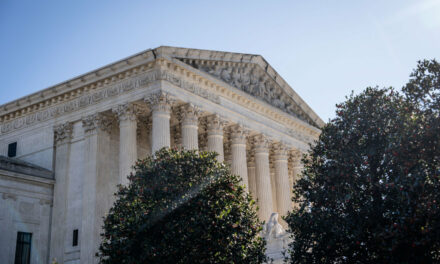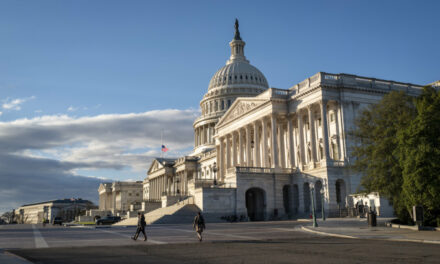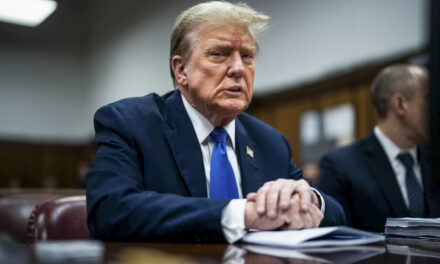We support our Publishers and Content Creators. You can view this story on their website by CLICKING HERE.
Trump had asked the Supreme Court to intervene after the judge and a New York appeals court rejected his attempts to stave off sentencing.
NEW YORK CITY—President-elect Donald Trump is expected to be sentenced on Jan. 10 in his business records case, 10 days before his inauguration.
New York Supreme Court Justice Juan Merchan has already indicated that he won’t give Trump any prison time or monetary punishment.
With an unconditional discharge, Merchan isn’t expected to impose any meaningful punishment but rather will likely enter a judgment of conviction and offer a statement condemning Trump’s actions.
“He’s going to take an opportunity to try to give Trump a tongue lashing, to try to make him look bad,” Heritage Foundation Vice President John Malcolm told The Epoch Times. Malcolm, who directs the foundation’s Edwin Meese III Center for Legal and Judicial Studies, said Merchan may accuse Trump of disrespecting the rule of law but ultimately not impose any sentence because Trump is about to take office.
The sentencing comes after a nearly two-year legal battle that started with Manhattan District Attorney Alvin Bragg indicting Trump in April 2023. More than a year later, in May 2024, a jury found Trump guilty on 34 felony counts of falsifying business records in relation to alleged payments to adult film actress Stephanie Clifford, also known as Stormy Daniels.
Merchan’s comments were made as he rejected the idea that Trump’s character should serve as a basis for throwing out the jury verdict.
“Defendant’s disdain for the Third Branch of government, whether state or federal, in New York or elsewhere, is a matter of public record,” he said. “Indeed, Defendant has gone to great lengths to broadcast on social media and other forums his lack of respect for judges, juries, grand juries, and the justice system as a whole.”
Trump has denied wrongdoing and derided the case as illegitimate.
Just before sentencing, he filed multiple appeals in order to stave off the sentencing date and challenge the legitimacy of the case.
Trump has asked it to consider whether he is entitled to an automatic stay, as well as whether Merchan’s admission of certain evidence violated the doctrine of presidential immunity. Another question that he proposed was whether presidential immunity extended to presidents-elect, which Merchan had rejected on Jan. 3.
Merchan had also rejected Trump’s arguments that the Supreme Court’s ruling in Trump v. United States, which established that presidents enjoy certain levels of immunity from criminal prosecution, undermined Bragg’s case.
The president-elect said the opinion written by Merchan “goes against our Constitution, and, if allowed to stand, would be the end of the Presidency as we know it.”
The New York state business records case is one of two remaining criminal cases against Trump, as two others, brought by special counsel Jack Smith, have been dismissed. After Trump’s electoral victory in November 2024, Smith filed to dismiss the Washington election interference case and an appeal related to the Florida classified documents case, while citing a long-standing Department of Justice assertion that prosecution of sitting presidents violates the Constitution.

 Conservative
Conservative  Search
Search Trending
Trending Current News
Current News 







